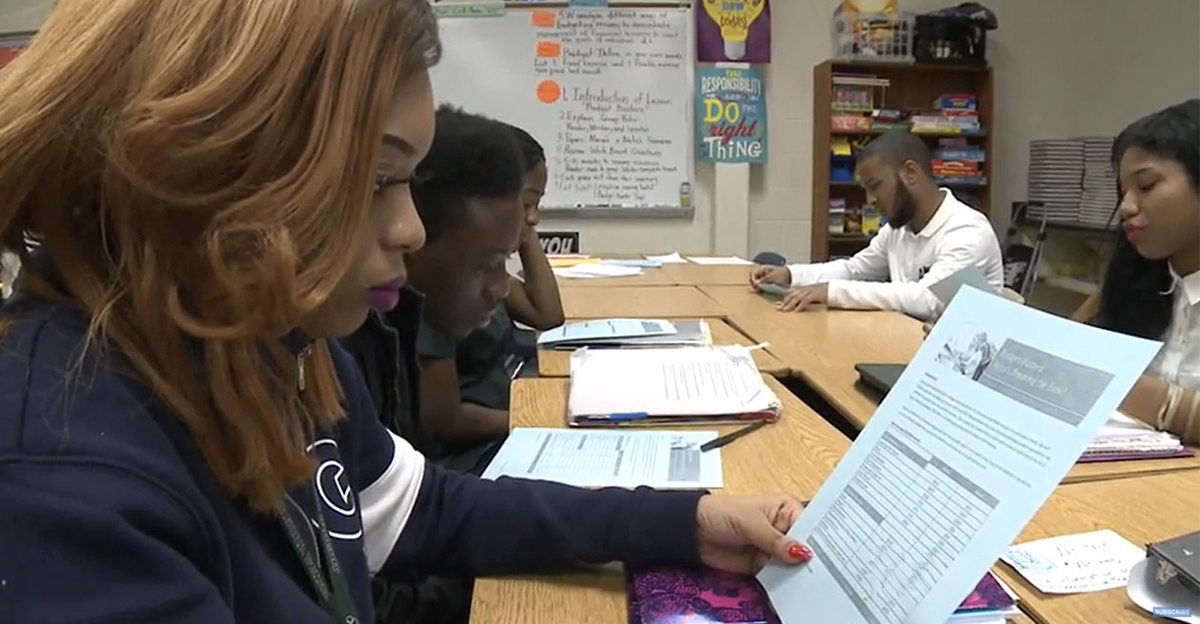Why High School Should Teach Money Skills
Teenagers are venturing into a complex financial world: student loans, credit cards, digital banking, investing apps, and that's just a start. With so much at stake, a lot of states are making financial‑literacy education a requirement for graduation. The shift reflects growing concern that young adults are leaving school totally unprepared for real‑life money decisions. It’s a “life‑skill” gap that’s become a policy priority.

What Is Financial Literacy Anyway?
Financial literacy means having the skills to manage money, budget wisely, borrow sensibly, save, and invest for the future. It’s not just about crunching numbers, but making rational financial decisions in your own interests. The consequences of these decisions are something that people have to live with for decades, which is why it’s so important.
Teens Are Vulnerable With Money
Young people often face decisions they’ve never had any guidance on: should I open a credit card? How much student debt is too much? Lack of financial literacy means a lot of people enter adulthood with shaky money habits, and in all likelihood, sizable debt that could've been avoided.
The Case For High School Money Courses
Research shows that compulsory personal finance courses improve student outcomes: better budgeting, fewer debt problems, and smarter savings. When schools give students the tools to handle money properly and intelligently, it pays off into adulthood.
How Many States Are On Board?
As of 2025, reports show roughly 29 states guarantee a stand‑alone personal finance course for all public high school students. Other states are currently looking at adding credit options or integrating finance into their existing economics or business curricula.
What Recent Legislation Shows
In the 2025 legislative session a lot of states introduced or passed bills requiring financial literacy instruction for graduation. This upswing reflects bipartisan consensus that money skills belong on the school transcript.
What Students Actually Learn
Typical high school finance curricula cover basic financial subjects like budgeting, saving, credit scores, investing basics, taxes and consumer risk. These aren’t just classroom topics, they’re real issues young adults have to deal with from the moment they graduate.
Changing Money Attitudes
When teens take a finance class, they report gaining better confidence with money and are more likely to ask questions, compare products, and avoid shady deals. This shift in attitude is as important as the knowledge itself.
Money Habits And The “Gen Z” Effect
Gen Z already shows some unusual money habits: cautious investing, early saving, and avoidance of getting into big debt. Layer finance education on top of all that and you’re now shaping a generation of young people with stronger money habits.
Budgeting, Borrowing, And The Real World
Financial‑literacy classes get students exposed early to budgets, student‑loan triggers, and the pitfalls of high‑interest credit. These “pre‑adult” lessons are geared to reducing costly mistakes around borrowing and spending when real life is travelling full speed ahead.
College Debt And Savings Gains
Students who learn personal finance in high school are more likely to save from an early age, put off taking on unnecessary debt, and think long‑term. That translates into a more sound financial footing as they enter their twenties.
Equity Matters: Leveling The Playing Field
One major benefit of financial‑literacy education is that it helps students from less advantaged backgrounds catch up. When schools teach money skills, the advantage of “learning at home”, and the disadvantage of not doing so, shrinks and access widens.
Challenges In Implementation
Despite the best intentions, obstacles remain: teacher training, curriculum standards, funding, and making the course meaningful and not just a checkbox on a transcript. Schools are under scrutiny to build quality programs, not just pile on more homework.
The Business & Employer Angle
Employers and ultimately the economy as a whole benefit when graduates have stronger money skills. People on average have fewer debt problems, fewer defaults, and save and invest more. All of this signals healthier financial futures and less stress for young people.
Parents And Schools: A Team Effort
Even with a course, a lot of this kind of learning is ingrained at home. Parents talking about money, explaining budgeting, modeling good habits will reinforce the value of school‑based instruction.
Technology And Modern Tools
Today’s teens live in a digital world of fast-flowing money: apps, mobile banking, buy‑now‑pay‑later, micro‑investing. Financial education has to reflect these current and future realities, not just checkbooks and interest tables. There’s a whole world of finance tech that people of all ages need to be familiar with.
Choose A Good Finance Course
If you’re looking at high‑school options or ways to help your teen pick the right course, focus on: dedicated credit (not just a section in economics), hands‑on simulations, up‑to‑date materials, and tracking student outcomes.
What This Means For You (As A Parent Or Young Adult)
If you’re a parent, advocate for strong finance classes. If you’re a teen or young adult, this course is an opportunity and a stepping stone. Once you’ve completed the course, take bold action; open a savings account, track your spending, and ask meaningful questions about credit. These are the habits that are best formed at a young age.
What Happens Next
Now that these changes are going to be affecting more and more states, watch for expanded graduation requirements and tighter standards. The policy momentum is gathering, but staying ahead means schools and communities have to act fast.
Investing In Tomorrow’s Money Success
Financial‑literacy education in American high schools is rightly becoming a priority. When students graduate with money‑skills, they’re more prepared, more confident and more likely to be able to build financial well‑being. That benefits families, employers and the economy alike. The kids who learn budgeting today are the independent adults saving a fortune tomorrow.
You May Also Like:
The Biggest Money Mistakes To Avoid In Your 30s
The Importance of Teaching Kids About Money


























